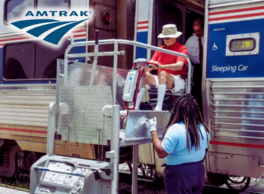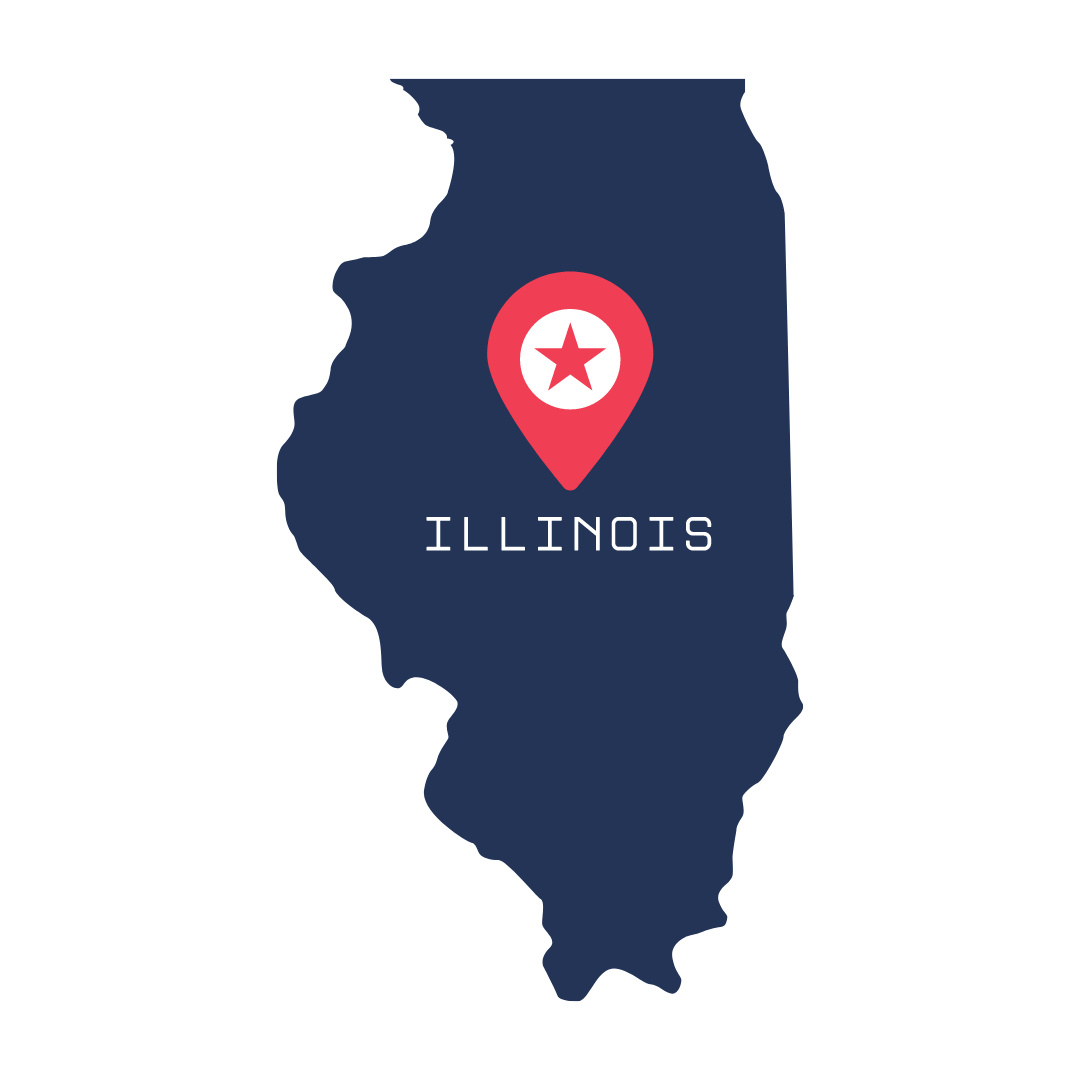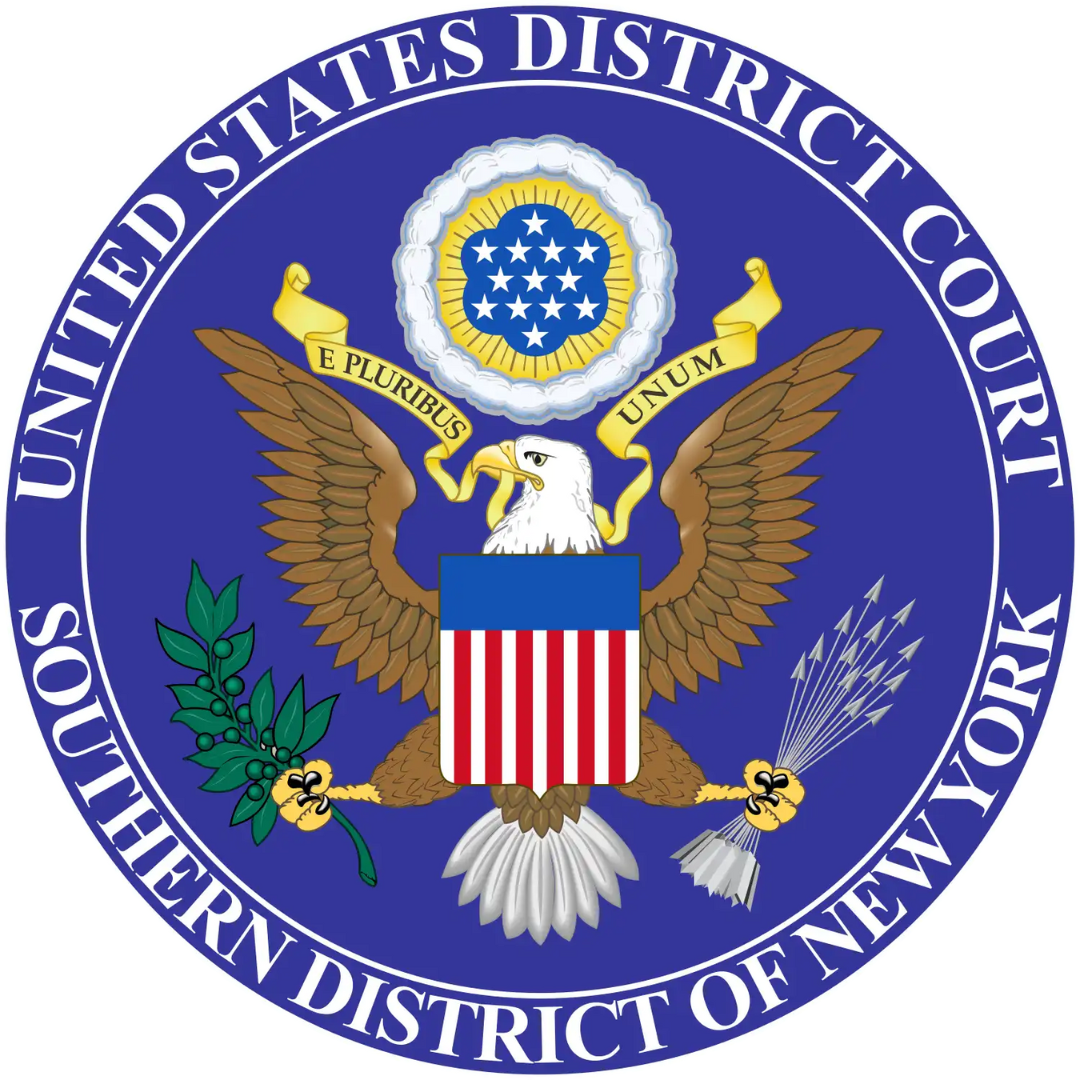

From Standards to Support: Understanding the Access Board’s Role in Accessibility (Recorded)
Ask an ADA Professional: Accessible Temporary Events (Recorded)
35th Anniversary of the Americans with Disabilities Act: Celebrating the ADA Through the Decades

July 26, 2025 marked the 35th Anniversary of the signing of the Americans with Disabilities Act (ADA). This year, we celebrated three and a half decades of ADA protections and the many milestones reached by the disability community thanks to this important law. Here are some of the most recent ADA milestones:
This month, our Great Lakes ADA Center joined the disability community in celebrating these important achievements by participating in the Chicago Disability Pride Parade, hosting online webinars, and sharing regional events and resources.

What LabCorp v. Davis Means for Disability Rights and Class Action Lawsuits
Even though the U.S. Supreme Court declined to issue a ruling on this recent case, the Arc explains how they feel it still leaves the door open for future disability-related class action lawsuits in lower courts. Check out the Arc’s analysis of LabCorp v. Davis.

OIG Report: Amtrak Needs to Improve Customer Service Towards Passengers with Disabilities
The Office of the Inspector General (OIG) reported that Amtrak has no overarching strategy to improve customer service for passengers with disabilities and lacks coordination between departments. Learn more about the OIG recommendations to improve the access and experience of passengers with disabilities on Amtrak.

Yale School of Nursing: Training Students to Care for People with IDD
A new Yale Initiative for Intellectual and Developmental Disabilities (IDD) will provide an interdisciplinary educational experience for advanced practice nursing and midwifery students to strengthen their skills and competencies in treating and caring for patients with IDD and their families. Learn more about the Yale School of Nursing’s new IDD initiative.

Illinois Secretary of State’s office Awards Nearly $20M In Grants for Libraries
Of the $20 million, the IL Secretary Office is issuing over $1 million in grants to help fund improvements such as adding hardware and software, purchasing digital devices and mobile apps, increasing Wi-Fi capacity and internet accessibility, assuring ADA compliance for library websites and purchasing adaptive technologies that accommodate service needs for persons with disabilities. Additionally, nearly $1 million in grants will assist public libraries with construction costs to begin new construction, make additions to existing buildings or remodel for accessibility.
New Sales Tax Revenue Could Improve RTA Paratransit Operations
A change to Illinois’ sales tax law will add an additional $150 million this year to the RTA budget and another $225 million next year. That money will drastically reduce the impact of the looming $770 million “fiscal cliff,” which begins in January. In an internal RTA document, the transit agency is considering spending $44 million of that additional money this year on ADA paratransit operations.

Public Comment Period for Medicaid & Medicaid Waiver Updates
The Bureau of Disabilities Services and Office of Medicaid Policy and Planning are asking for public comment on proposed amendments to the Family Support, Community Integration and Habilitation, Health and Wellness, Indiana PathWays, and Traumatic Brain Injury Waivers to the Centers for Medicare and Medicaid Services. The 30-day public comment period ends on August 8, 2025.
Gov. Signs Bill for Community-Based Care Options for Older Hoosiers and People with Disabilities
House Bill 1391 was recently signed and passed into law. One of the goals of the bill is to divert Hoosiers from long-term Medicaid enrollment. The bill calls for Indiana’s Area Agencies on Aging — nonprofits that help clients with case management and services — to use funding from the Community and Home Options to Institutional Care for the Elderly and Disabled (CHOICE) program to focus on preventative measures. It includes things like education and outreach as well as opportunities for people to benefit from home modifications, like grab bars in the bathroom or ramps leading into a home.

MDCR Seeking Public Input on Accessibility Barriers
The Michigan Department of Civil Rights (MDCR) is conducting a Self-Evaluation and Transition Plan to review the accessibility of its facilities and programs in accordance with Title II of the ADA. MDCR is seeking public comment on barriers related to MDCR programs. The goal is to ensure that all of their programs, services, and activities are readily accessible to and usable by persons with disabilities. MDCR will accept public comments via the Michigan Department of Civil Rights ADA Survey until the plan’s anticipated adoption in the fall of 2025.
MDHHS Proposal to Privatize Community Mental Health Services Under Criticism
Michigan Department of Health and Human Services (MDHHS) is looking to open mental health services to a competitive procurement process, a move that has drawn criticism from mental health advocates and organizations across the state. In May, MDHHS released the results of a behavioral care survey along with details about an upcoming competitive procurement process for the state’s Prepaid Inpatient Health Plan (PIHP) contracts.

DHS Direct Support Professionals Survey
Minnesota Department of Human Services (DHS) is conducting a short survey to learn more about direct support professionals in order to better understand and improve working conditions. The survey deadline is 5 p.m. on Friday, Aug. 29, 2025. To complete the survey, refer to DHS – HCBS direct support labor market survey 2025. DHS plans to report the survey findings to the legislature in early 2026.
Increased Medicaid Oversight: Autism and Housing Services
Starting June 1, the Minnesota Department of Human Services will tighten screening requirements for providers who bill Medicaid for autism services and some housing services. This includes Housing Stabilization Services, which helps older adults and people with disabilities with housing, as well as Early Intensive Developmental and Behavioral Intervention autism services.

Accessibility at the 2025 Ohio State Fair
The 2025 Ohio State Fair is taking place from July 23 to August 3. Visitors can look forward to a variety of resources designed to ensure everyone can fully enjoy the Fair. Visit the Ohio State Fair’s Accessibility webpage or app ahead of time for essential information. Upon arrival, guest information services booths offer daily schedules, maps, and directions. For those seeking additional support, the OOD mobile unit is stationed near the Lausche Youth Exploration Space, providing comprehensive accessibility information.
Ohio State Budget Continues Support for People with Developmental Disabilities
The budget ensures that essential support for people with developmental disabilities (DD) is available and continues the historic investments in direct support professionals (DSPs) from the last budget. The budget includes funding for the Technology First initiative to allow for greater independence and quality of life for Ohioans with developmental disabilities. Funding will also help keep youth in their family homes and provides short-term stabilization and long-term residential settings when needed.

Public Comment: IRIS Waiver Renewal
The Wisconsin Department of Health Services is renewing the Include, Respect, I Self-Direct (IRIS) waiver. IRIS is a Medicaid long-term care program for older adults and adults with disabilities. During the renewal process, they’d like to hear from participants about ways they can make services and policies better in the program. The public comment period is open from July 9 to August 8, 2025.
City of Madison Proposed ADA Transition Plan Open for Public Comment
City of Madison revitalized American with Disability Act (ADA) Transition Plan is open for public comment June 24 – August 23, 2025. The City of Madison encourages comments and suggestions, especially from Disabled Madison residents/residents with disabilities and disability-led organizations. The final plan will be introduced to the Common Council in September 2025.

EARN: Policy and Financial Resources for Employers with Employees with Disabilities
The Employer Assistance and Resource Network on Disability (EARN) have two great resources to help employers meet their ADA requirements. The first is Workplace Accommodation and Accessibility Policy: A Disability Employment Toolkit and the second is the Small Business Series: Federal, State, and Local Disability Hiring Incentives and Resources for Small Businesses.

Plain Language and Easy Read Communication Guide
In order for people with disabilities to be able to use content, they need to understand it. Check out this great resource on plain language from the Center on Disability.

U.S. Access Board: Outdoor Developed Areas Guide
Making outdoor programs like hiking trails, beaches, and camping accessible to people with disabilities is required under the ADA, however, the 2010 ADA Standards contains limited information on how to make the outdoor environment accessible. Check out the U.S. Access Board’s ADA and Architectural Barriers Act (ABA) guidance for federal outdoor developed areas to help make the great outdoors accessible to all.

Answer: Yes. The 2010 ADA Standards make repeated references to interior and exterior elements that are part of the built environment. For example, a city park might include public restrooms, entrances, a parking lot, drinking fountains, a playground, etc. All of these exterior site features would be covered under the 2010 ADA Standards in new construction, alterations and additions.
Programs or activities provided in natural settings like beaches, forests, etc. can also be subject to the general nondiscrimination requirements of the ADA for Title II and III entities. Absent a fundamental alteration or undue burden, ADA-covered entities may be required to make physical modifications to the outdoor environment or provide other aids and services in order to ensure people with disabilities have equal access to their programs and activities.
Resource(s):
Learn more by visiting our ADA Frequently Asked Questions.

EEOC v. R & G Endeavors, Inc. (Culver’s Restaurants of Cottage Grove)
Culver’s Restaurants of Cottage Grove, MN, will pay $261,000 and provide other relief to settle two cases. EEOC alleged that Culver’s subjected a worker with an intellectual disability to harassment through frequent name-calling, derogatory language, unfair discipline and hostility, as well as underpaying him compared to other employees. The company failed to address the hostile work environment and discrimination even after receiving complaints.
EEOC v. Carlstar Group LLC (Carlstar)
According to the suit, since at least January 2020, Carlstar has denied opportunities to manufacturing employees when the company learned that those employees were lawfully taking certain prescription medications, including narcotics and opioids, for the treatment of disabilities, even after the employees were medically cleared to perform their job duties. The suit also alleges that Carlstar failed to consider or provide the workers with reasonable accommodations to the company’s drug testing and substance abuse policy that would enable employees to work while lawfully using their prescribed medications.
Champion Media will pay $102,500 and provide other relief to settle a disability discrimination lawsuit. EEOC alleged a deaf job applicant applied for a job at Champion Media’s printing facility. After participating in an initial conversation over the phone and with the assistance of a video relay service, the applicant, who met the requirements for the position, was selected for an in-person interview. The applicant requested a sign language interpreter as an accommodation for the interview. Instead of providing an interpreter, Champion Media canceled the interview and did not hire the applicant for the job.
EEOC v. Equinox Holdings, Inc. (Equinox)
Equinox will pay $48,000 and provide other relief to resolve a disability and sex discrimination lawsuit. According to the suit, Equinox rejected a female applicant with endometriosis and experience working for other fitness companies after she requested that her second-round interview for a front desk associate position be delayed by a few days due to her painful menstrual cramps. The manager who interviewed the applicant explained to her via text that she had been passed over “[o]nly because [of] the concern in the future if your absence may occur due to your monthly cycle.”
EEOC v. Elaine’s Pet Resorts, et. al.
Elaine’s Pet Resorts will pay $35,000 and provide other relief to resolve a disability lawsuit. According to the lawsuit, since at least 2021, Elaine’s Pet Resorts failed to hire or terminated employees who failed the company’s post-offer drug screening, despite the medications being lawfully prescribed.
According to the suit, Navitas Systems, MI, maintained a policy which required any employee returning from medical leave to be 100% free from restrictions. An employee suffered severe injuries to his left arm; his doctor temporarily restricted him from using his left arm but cleared him to return to work using his other arm. The employee could have completed the essential functions of his position using only one arm, but Navitas applied its policy, refused to allow him to return to work and fired him. Under the three-year consent decree resolving the lawsuit, Navitas will pay $95,000 in monetary damages to the employee, provide annual training on the ADA to all managers, etc.
EEOC v. Children’s Healthcare of Atlanta, Inc. (CHOA)
CHOA will pay $50,000 and undertake remedial measures to settle disability discrimination lawsuit. EEOC alleged CHOA rescinded a job offer to an applicant who had sought a disability-related exemption to CHOA’s flu vaccination requirement based on a severe allergy to eggs, which are often contained in the standard flu vaccination. Despite the applicant indicating a willingness to take an alternate form of the flu vaccine, CHOA rescinded the applicant’s job offer because of her disability and instead filled the position with a candidate who had “no issue” receiving the flu vaccine.

Tarquinio v. Johns Hopkins University Applied Physics Lab
Employee with Lyme disease worked for Johns Hopkins during the pandemic. As a federal contractor, Johns Hopkins had to make sure that everyone was vaccinated. Employee submitted documentation over 9 years old to not have to take the vaccine. A subsequent back-and-forth ensued but the employee provided no current medical documents and never consented to releasing medical records. In the end, employee never got vaccinated and never got an exemption. As a result, the lab fired her. Learn more: Plaintiff Loses But Persons with Disabilities Going Forward Don't

Belle Rose Ragins v. Mayor Ryan Sorenson and the City of Sheboygan
Ragins alleged her civil rights were violated when she wasn't allowed to speak remotely at a November 2024 City Plan Commission meeting. Ragins, has late-stage Lyme disease and hearing loss. Ragins filed two formal complaints with city staff, but she hasn't received any response. There is an order for remote mediation which will be held on 7/30/2025.Learn more: Town of Wilson resident sues Sheboygan mayor, city alleging ADA violations.

Jonathan DiFraia v. Kevin Ranson ET AL.
DiFraia was forced to stop taking life-saving medication while he was incarcerated because he received two disciplinary charges. The deprival was not based on DiFraia’s medical needs, but entirely on a non-medical rationale. As a result, DiFraia suffered painful withdrawal symptoms and his mental and physical health deteriorated. After being taken off of his MOUD, DiFraia asked for his medication to be reinstated. After the request was denied, he sued. Learn more: ACLU Urges Appeals Court to Reverse Dismissal of Case Challenging Deprival of Medication for Opioid Use Disorder.

DOJ v. Sea Mar Community Health Centers and Subsidiaries (Sea Mar)
U.S. Attorney's Office entered into a settlement agreement with Sea Mar, which operates 28 dental clinics. Under the agreement, Sea Mar will take steps to provide equal access to care to patients with disabilities at dental clinics, including patients who require assistance to transfer to or from an exam chair or other medical equipment.

Sumlin, legally blind and uses screen-reading software, alleged that he could not navigate the NY Beer’s website to browse menus or make reservations. Southern District of New York granted in part a default judgment. NY Beer is ordered to resolve each of the accessibility issues identified in the expert report submitted by the individual as soon as reasonably practicable.

Reaves v. Immediate Medical Care, P.A.
A person with a service animal (SA) arrived at a doctor’s (doc.) appointment with her SA. Unfortunately, the doc. was severely allergic to dogs which would cause the doc. great difficulty in breathing when exposed to the dog. The doc. discussed with the plaintiff in her office possible alternatives, such as an alternative appointment with another doc. or having the appointment with the doc. she was scheduled to see while the SA waited outside. The court found no ADA violation. Learn more: A Doubleheader: Direct Threat (Service Animals).

